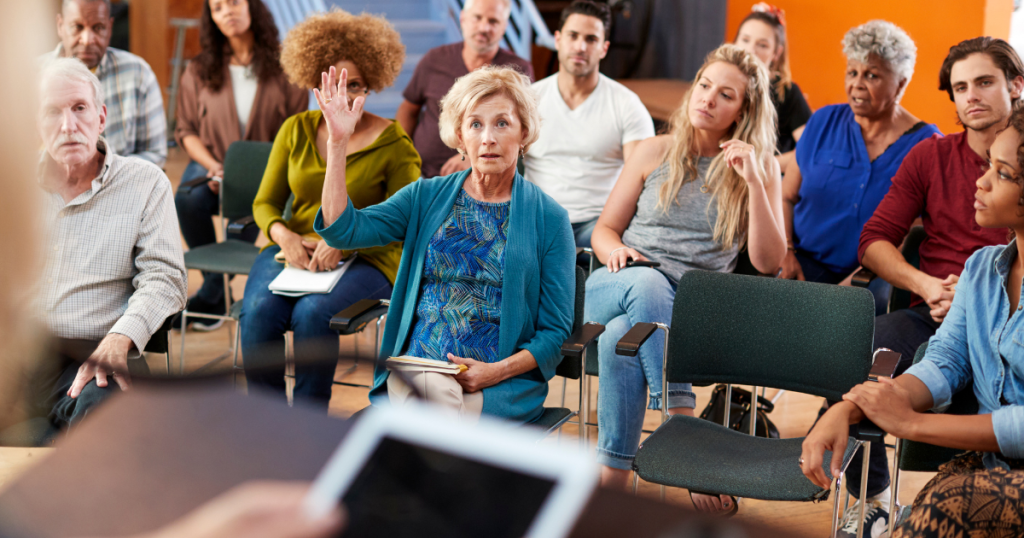Addressing Local Disputes and Fostering Community Engagement
March 20, 2024
This year at the UNC Cleantech Summit a panel will be hosted on Local Siting Disputes, highlighting the unique intersection of renewable development and public engagement. Katherine Ross, a speaker on the panel, has 15 years of experience as an energy attorney at Parker Poe Adams & Bernstein LLP, advising developers on development permits across the southeast. With her expertise spanning land-use zoning, regulatory compliance, state energy permitting, and environmental regulations, Ross offers invaluable insights into the siting of clean energy projects while fostering public engagement. I am excited to share some of the common challenges in these local disputes and how to move forward.
Engaging in Meaningful Conversation Early
Siting clean energy projects is an imperative part of the energy transition that begins the process of electrical generation. However, local opposition can hinder the siting process and impede the development of clean energy projects. Ross began our conversation with the importance of meaningful public engagement early in the development of an energy project. This indicates that both the community and developers require ample time to exchange knowledge and develop relationships, allowing citizens to understand and become more informed about the impending project. One of the obstacles Ross highlights is the panic mode that often sets in within a community when a project is publicly noticed in connection with a permit application, which often leads to citizens raising wide ranging, and often irrational, opposition at public hearings. This panic often stems from the abruptness of learning about a project entering their community and citizens not having an opportunity to meaningfully engage with a project developer. Targeted and meaningful community engagement may allow for citizens to be educated on the project, understand the potential limited impacts, and reduce some opposition during the actual permit hearing process.
Navigating Concerns
Ross broke down two arguments often raised by opponents of clean energy projects: destruction of rural aesthetics and environmental impacts. Naturally, rural communities worry about the changing aesthetics of the land they see every day which can be a force that opposes clean energy. Often these sentiments go along with the belief that property value will drop when a clean energy project is developed in the community. Ross notes that study after study has shown that the presence of a project does not negatively impact property values, and that organizing the opportunity for members to visit a well-established, operating project is often the best way to combat these concerns. In addition to aesthetics, the concern over environmental impacts is a concern raised by citizens during the permitting process. Ross highlights two types of environmental impact concerns often raised: a threat to contamination of soil or groundwater and a threat to wildlife. In the face of these challenges, Ross says that good sitting is designing a project that integrates with the land rather than just sitting on top of it and mitigating potential impacts.
Moving Forward
In order to achieve the targets for reaching net-zero emissions in the near future, it is imperative to have clean energy online to replace polluting resources. I inquired about how Ms. Ross balances the importance of clean energy and the need to address community concerns. Her response underscores the importance of the growing industry acknowledging that to garner support for clean energy initiatives, communities must be actively engaged and educated. Ross emphasizes that the deployment of clean energy requires fair and equitable policies and a sense of responsibility from the industry to ensure well-sited projects. A key aspect of this approach involves considering how to be a good neighbor and being transparent about the potential impacts of these projects.
As our discussion concluded, I inquired with Ms. Ross about what she looked forward to witnessing as the transition progressed. She expressed excitement about seeing major projects come online, particularly eliminating the bias against solar projects as they become more widespread. She noted that often an initial project posed significant challenges, but if the first project is done well, subsequent projects become easier. However, she acknowledges that as the industry expands, citizen awareness will increase, making community engagement even more complex, thus the life of an energy attorney is ever-evolving.
This article was written by Cleo Carter, an intern with the UNC Cleantech Corner initiative.
